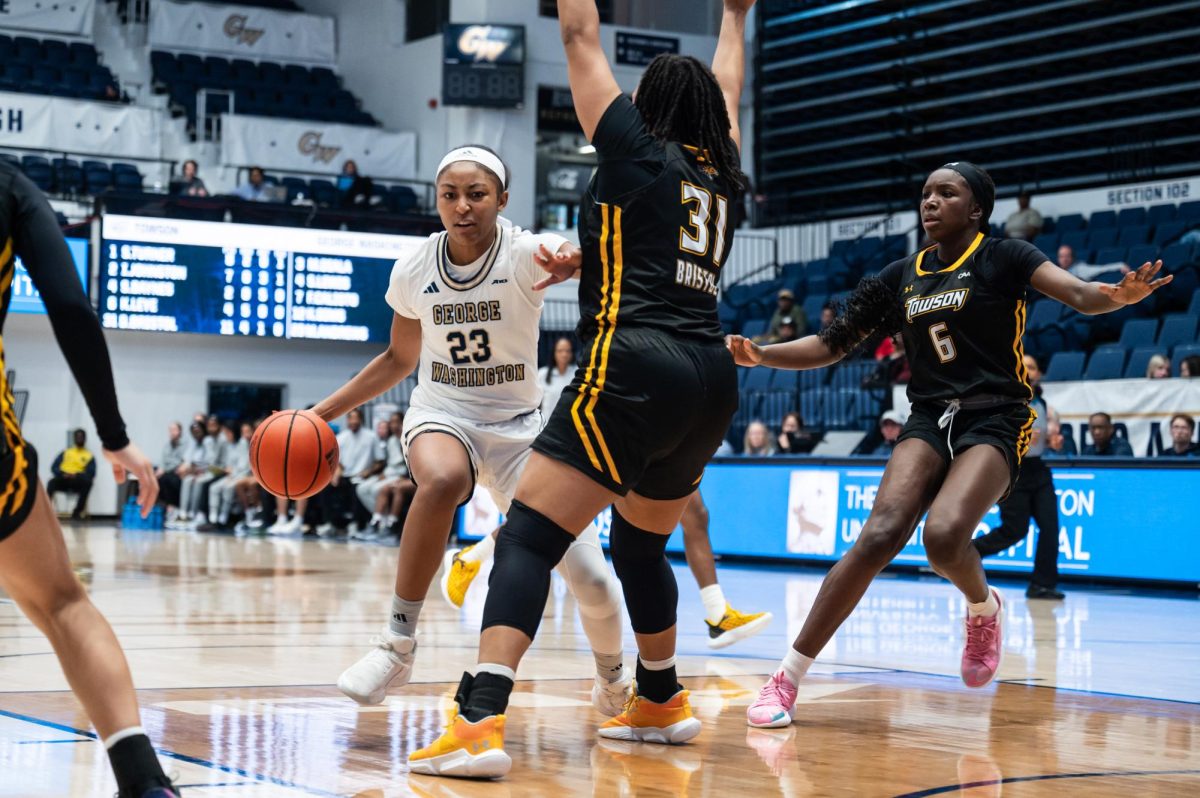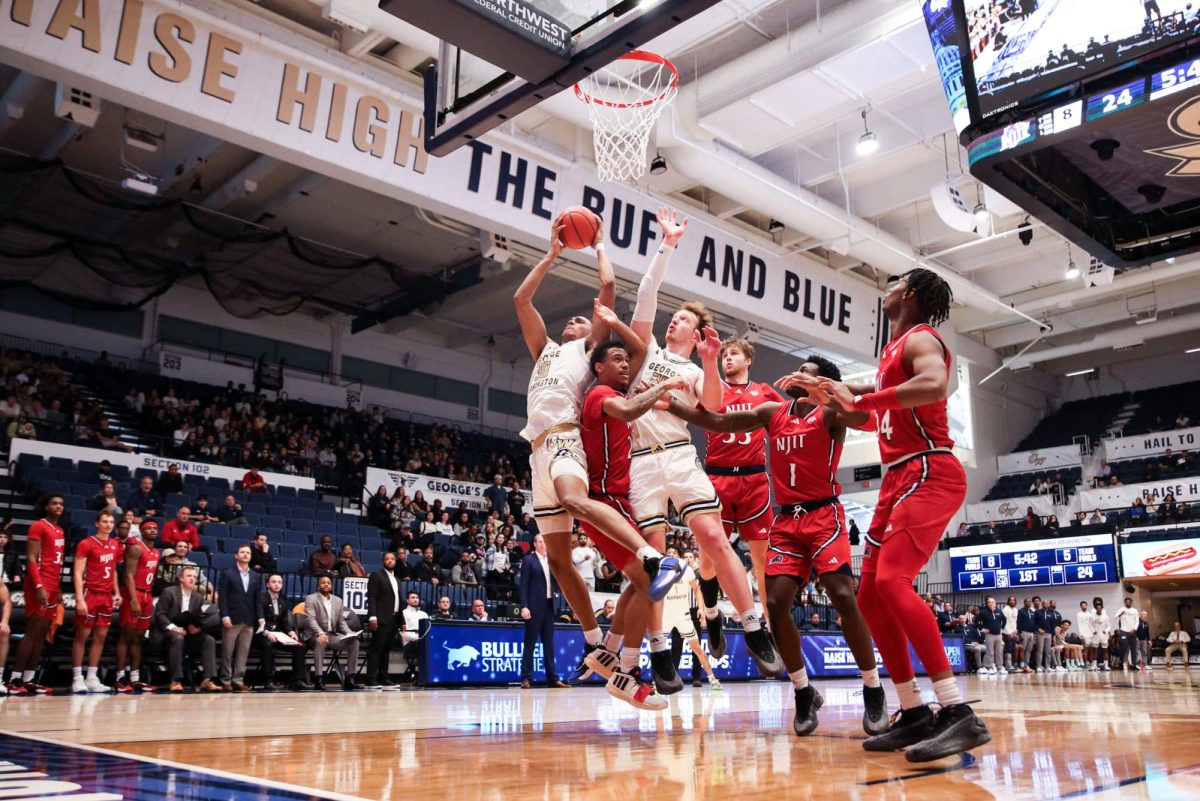Jackie Robinson broke the color barrier in Major League Baseball in 1947, bravely facing brutal discrimination and racism throughout his career. His courage and commitment to fighting discrimination turned Robinson into a symbol of hope for the country.
Thursday’s 15th annual Jackie Robinson Night paid tribute to the groundbreaking second baseman and honored Arthur Silber and Wilma Bonner, this year’s recipients of the Jackie Robinson Society Community Recognition Award.
“The connection is both personal and academic. He’s a fairly neglected figure in American history,” Richard Zamoff, the director of the Jackie Robinson Project, said. “The Robinson story is so important because it’s a catalyst for change in the rest of society.”
The Society was created by three of Zamoff’s students to honor the legacy Robinson left.
“The Society was created in the year 2000, the first year I taught the Robinson course. We wanted to identify people who had made outstanding contributions to the District of Columbia,” Zamoff said, adding, “He [Robinson] really illustrated what was going on in the United States by what was going on in the playing field.”
Silber is the chairman and CEO of the Potomac Nationals, a minor league affiliate of the Washington Nationals, and Bonner is the director of teacher education at the Howard University School of Education. They were honored for their dedication and outstanding contributions to their communities. Silber, Zamoff said, works to keep Robinson’s legacy alive on and off the playing field, volunteering for numerous charities and ensuring his players understand the significance of Robinson’s contributions.
“She’s [Bonner] done a tremendous amount of work on behalf of schoolchildren,” Zamoff said. “Her award is primarily based on her distinctive service to schoolchildren.”
Zamoff also highlighted Silber’s unique connection to Robinson. As a young boy, Silber stood outside Ebbets Field, then home to the Brooklyn Dodgers, waiting for Robinson to come out after the game. An avid baseball fan, Silber would join Robinson on his walk down the street, talking over the game they both loved and forming a lifelong friendship in the process.
“He wears uniform number 42, Robinson’s number,” Zamoff said. “He talks to his players every year about Robinson, the significance beyond baseball. He’s very emotional about his own trials, how his parents raised him and how he’s always known what Robinson’s significance was.”
The night was a chance to honor a true pioneer of sports, recognizing those who continue to uphold his legacy. It was a meaningful celebration for all who have been touched by Robinson’s act of courage.






